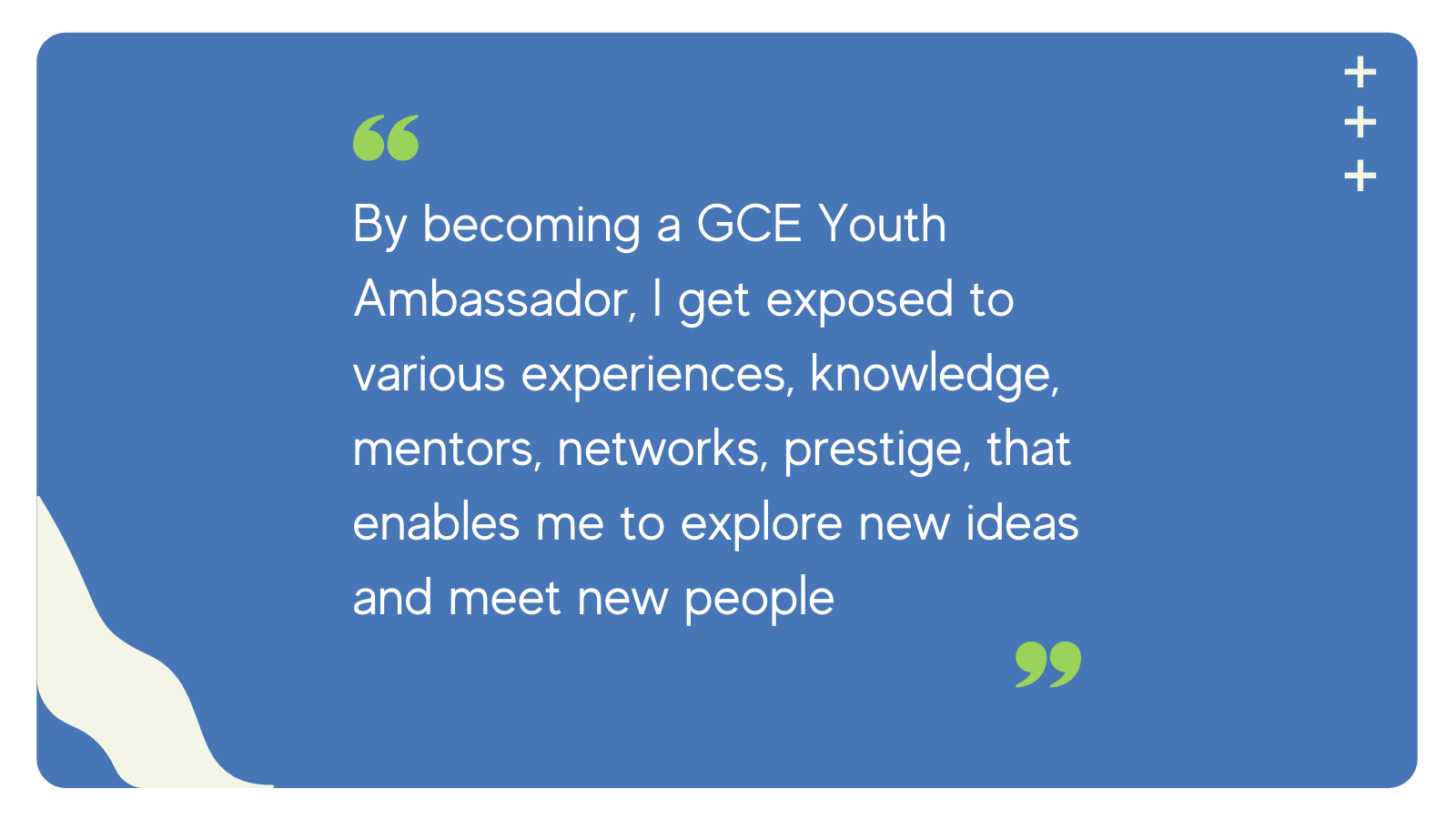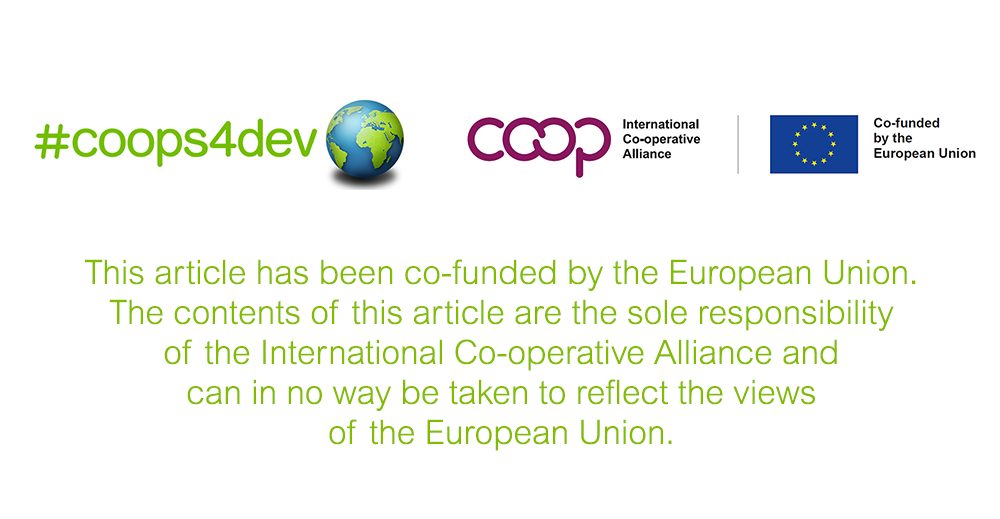
Global Cooperative Entrepreneurs (GCE) is an innovative mentoring programme that brings together young entrepreneurs with a brilliant coop idea with mentors from both the cooperative movement and youth organisations. The GCE programme not only generates a global network of like-minded people, but it also works as a catalyser of new ideas to support young entrepreneurs to make their coop dream come true. It is an initiative by the ICA-EU Partnership (#coops4dev), inspired by the CoopStarter 2.0 Erasmus+ funded project coordinated by Cooperatives Europe.
Find out more about the programme in this brand-new webpage!
-----
Meet some of the GCE youth ambassadors and mentors! Today we talk with Inra!

Brief description of your start-up idea
KODI is a community banking cooperative platform that offers services for cooperatives to manage their resources, expand their membership, manage their finances with core banking features and community-wide transparency. KODI is solving the financial and member management pain of community-owned cooperative businesses, while expanding community business opportunities to achieve sustainable local development, and increase financial literacy and financial inclusion.
Explain us a bit why you chose this particular project? What elements made you think that there is a niche business and a social need for this service?
In Indonesia we have an expression that says that a cooperative is "soko guru ekonomi" (the pillar of our economy). Cooperatives (Koperasi) employ 22.5 million Indonesian (8.5% of the population). Cooperatives develop micro-financial activities and are run by the member for the members. Its revenues represent 5.1% of the nation's GDP. However, 90%+ of them are not digital, they are inefficient and still doing manual pen-paper bookkeeping with the risk of error and fraud.
I have been part of the cooperative movement since school age around two decades ago. Recently, when I came back and visited my old school, they were still using the same student coop saving book record as it was 20 years ago. A similar thing happens with all the community cooperatives and credit cooperatives in satellite cities and rural areas. In this digital age, cooperative is one among others that need a touch of digital innovation.
How will your project benefit your community?
KODI has the mission to make cooperatives more relevant in the current business ecosystem - being technology an inherent part of the business model -, to maximize transparency as a bridge of trust among cooperative stakeholders, and to allow fresh new coops to emerge.
At the larger scale, KODI platform will help cooperatives to become a strategic economic model to tackle inequality, wealth disparity, as the platform allows cooperatives to be more accessible for small investors. Anyone can "own" a business by becoming a cooperative member.
When you start up a business project in your country, what are in your opinion the most important elements to facilitate the accomplishment of your project (e.g. a mentoring service, access to finance, a supportive regulation, bureaucracy)?
First of all, a clear business model with a feasible working plan in a concrete time frame. In addition, access to a mentoring network, to ensure we are walking in the right path.
What are the main challenges that you have encountered/are encountering to move on?
As a startup that provides technology services to digitize traditional business, scalability is the main challenge. To find the employees with the appropriate technical knowledge who could onboard sharing the same vision, is also difficult to find.
Is the COVID-19 pandemic impacting your GCE agenda? If so, how is it impacting and what measures are you taking to continue with your start-up idea?
Yes, COVID-19 impacts our customers greatly, some of them cannot continue their business and, therefore, are unable to continue using our service. Last year, we relied on a government contract to stay afloat. By early of Q4 2020, we have already set our pace to grow and hire additional employees.
Is the cooperative model offering more elements of resilience to cope with the current COVID-19 crisis than other types of business models?
Cooperative organizations that have a close-knit internal economy cycle including their members, provide collective resilience when external crises hit. However, this can only happen when the coop ecosystems are big enough to sustain their members. Unfortunately, small coops are still vulnerable, and, unfortunately, cooperation among cooperatives in Indonesia is not well established.

What is your projection for the near future?
With the experience of this unpredicted pandemic, the future looks uncertain. However, we are aiming to enable coops with all the tech tools available and we are optimistic that in near future there will be more creative and modern types of cooperatives emerging in Indonesia.
How did you hear about the GCE programme?
Back then, I was subscribed to the ICA newsletter to enhance my knowledge about coops, and stumbled upon a brief news about the GCE ambassador programme. With the spirit to widen my network and knowledge, I sent an application letter.
Why did you decide to become GCE Youth Ambassador?
Back then, youth in Indonesia became less exposed to the benefits of the cooperative model, and more exposed to the bad side of old mismanagement style of running a cooperative. This is sad, and the seniors who want to fix the problem are unable to get in touch with youth culture and habits. So my friends and I are doing our part to bridge them by using the means we know best: technology.
How can the GCE programme help you to make your entrepreneurial project happen?
By becoming a GCE Youth Ambassador, I get exposed to various experiences, knowledge, mentors, networks, prestige, that enables me to explore new ideas and meet new people, and helps me not be afraid to venture new entrepreneurial projects. And by not being afraid, I can unlock more opportunities.
Why do you think the cooperative is the best business model for your project?
Being one of the most stable economic equations with the right amount of supply and demand together with less competition, cooperative business models allow us to excel not alone, but together with our coop members.
-----
The ICA-EU Partnership on international development (also known as #coops4dev) was signed in 2016 between the International Cooperative Alliance and the European Commission to strengthen the cooperative movement as key actor in international development.
Read more about #coops4dev on our website.





